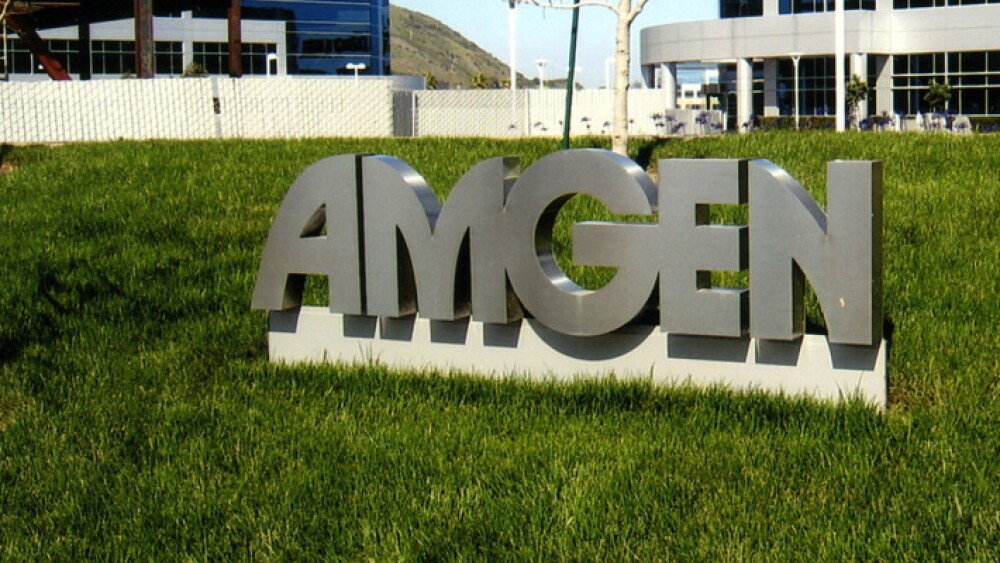March 24, 2017
By Mark Terry, BioSpace.com Breaking News Staff
PCSK9 inhibitors are a new category of cholesterol drugs. To date, the two companies with products in the field are Amgen with Repatha, and Regeneron Pharmaceuticals and Sanofi ’s Praluent.
But now there is speculation that The Medicines Company may have a PCSK9 inhibitor that could beat both of them. Writing for The Motley Fool, Todd Campbell looks at The Medicines Company and its cholesterol drug inclisiran.
On March 17, The Medicines Company and Alnylam Pharmaceuticals announced positive final results from its Phase II clinical trial of inclisiran. It showed significant and sustained reductions of LDL-C (cholesterol) and had few side effects.
“The groundbreaking results from ORION-1 are compelling and affirm inclisiran’s unique and highly-differentiated attributes, and its game-changing potential to address the unmet needs of millions of at-risk, often non-adherent, patients worldwide who continue to struggle with high cholesterol given the limitations of available therapies,” said Clive Meanwell, chief executive officer of The Medicines Company, in a statement. “We are singularly focused on thoughtfully and aggressively advancing inclisiran into Phase III development, including the initiation of ORION-4, which we expect to include cardiovascular outcomes in high-risk primary and secondary prevention patients with an average baseline LDL-C of approximately 130 mg/dL.”
These drugs are primarily for individuals with very high levels of cholesterol who do not respond to statins. They’re pricey—Repatha runs about $14,000 a year compared to a typical $60 per month for statins. That’s been a problem for the PCSK9 inhibitors gaining traction in the market, and pharma companies have been conducting more studies in hopes of not only showing the reduction of cholesterol, but decreased risk of heart attack and stroke.
To that end, on March 17, Amgen released the results of a large outcomes study of Repatha that had great results, although there were concerns those great results weren’t good enough. Studies have shown that PCSK9 inhibitors with statins cut LDL cholesterol by 40 to 60 percent, compared to statins, which reduce cholesterol levels by about 24 to 35 percent.
Amgen’s study, which involved 27,564 patients, did show that the drug led to more cuts in major cardiovascular events, including heart attacks, strokes and coronary revascularizations. Enough to warrant doctors prescribing it routinely and insurers paying for it? Not as clear.
Stock analysts and cardiologists were hoping Repatha would reduce the risk of heart attacks, strokes, deaths from heart disease, and hospitalizations due to chest pain, as well as stent and heart bypass procedures, by as much as 30 percent. Instead, the results were around 15 percent. Repatha did a better job of reducing heart attacks and strokes, but had no particular effect on whether patients died.
It’s a peculiar aspect of the drug market where a really great drug isn’t viewed as a success because it’s not even better.
Now the question comes up—is The Medicines Company’s drug better than Repatha or Praluent? There’s a lot of science to be done before that can be determined. But maybe.
Campbell writes, “While Repatha targets the PCSK9 protein in the bloodstream to prevent it from binding to and breaking down receptors in the liver, inclisiran uses RNA technology from its collaboration partner Alnylam to interrupt PCSK9 synthesis. Because inclisiran targets PCSK9 at the source, it may provide similar efficacy to Repatha with fewer annual doses.”
And in Phase II trials, it was pretty spectacular. It showed more efficacy with fewer doses. If that could also be tied to lower prices, then insurers would get on board.
Another complication is that Regeneron and Sanofi are involved in patent litigation with Amgen. So far, Amgen’s winning. It’s possible that Regeneron and Sanofi might end up pulling Praluent off the market or work out some sort of deal with Amgen.
It’ll be a while until The Medicines Company’s clinical trials wrap up, but it’s a good bet investors will be watching.





